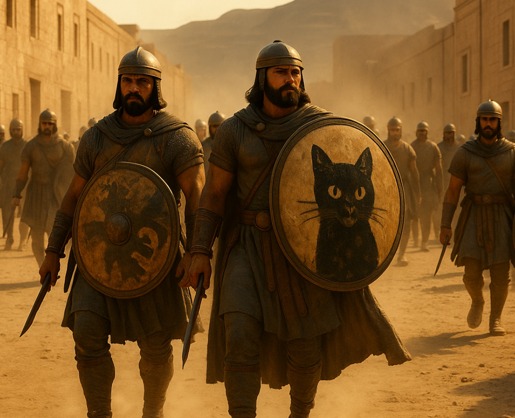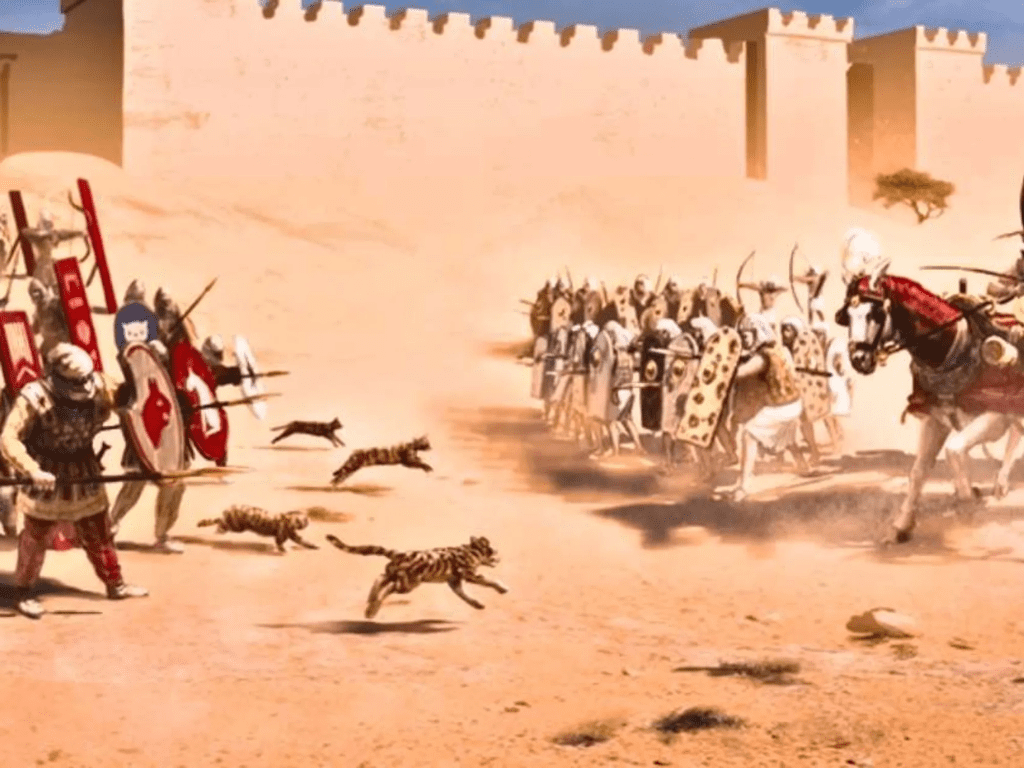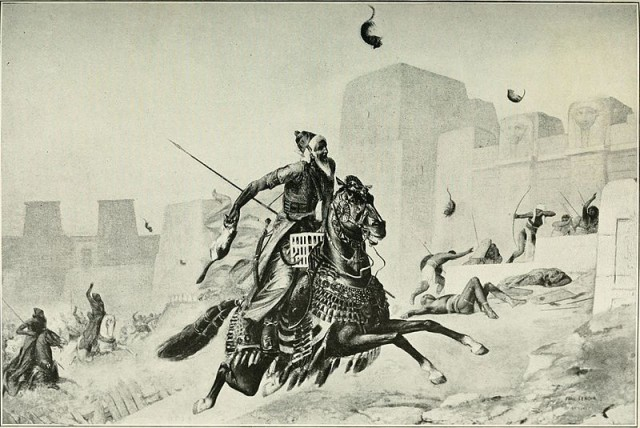History is filled with epic battles, clever maneuvers, and tales of raw power. But sometimes, it’s not brute strength that wins a war it’s psychology. One of the most fascinating and bizarre military strategies ever recorded happened in 525 BC, when the Persian army conquered Egypt using an unexpected advantage: cats.
Yes, cats.
What might sound like myth or exaggeration is backed by ancient accounts. The Persian commander Cambyses II, in his campaign to conquer Egypt, turned to cultural warfare exploiting Egyptian religious beliefs to gain the upper hand. In one of history’s boldest psychological tactics, he and his troops didn’t just bring swords to the battlefield. They brought cats.

The Battle of Pelusium: Where Strategy Met Superstition
The decisive clash took place at Pelusium, a key gateway city to Egypt located near the Nile Delta. The Egyptian army, led by Pharaoh Psamtik III, prepared for what they expected to be a conventional military engagement. But Cambyses had other plans.
Knowing the deep reverence Egyptians held for animals particularly cats, who were sacred and often associated with the goddess Bastet he devised a plan to weaponize that very respect.

The Persians painted images of cats and other sacred animals onto their shields. According to some accounts, they even herded live cats onto the battlefield, releasing them in front of the advancing Persian forces.
Video:
The Battle of Pelusium: How Cats Helped Persia Defeat Egypt
Faith as a Weapon of War
To the Egyptians, harming a cat even by accident was a grave sin, punishable by death. There are recorded instances of Egyptian citizens being executed simply for unintentionally killing a cat. With that kind of spiritual weight behind the animal, the presence of cats on the battlefield created a moral dilemma.
Imagine an Egyptian archer standing on the front line, bow drawn, but suddenly seeing dozens of cats scattered in front of the enemy. Every arrow became a potential act of sacrilege. Every sword swing could offend the gods.

Faced with this, the Egyptian army hesitated and that hesitation cost them everything.
The Persians exploited the psychological paralysis perfectly. They stormed Pelusium with little resistance and won a swift, decisive victory. The Egyptian forces collapsed, and soon after, the entire country followed. Pharaoh Psamtik III was captured and later executed, marking the end of Egypt’s 26th Dynasty.
Not Just a Battle A Turning Point
The fall of Egypt to Persia wasn’t just another war story. It was the beginning of a major shift in regional power. Egypt became a satrapy or province of the Achaemenid Persian Empire. For nearly two centuries, Persian rulers would control Egypt, influencing its politics, economy, and military structure.
And all of it began with one of the most unusual battlefield tactics in recorded history.
Video:
Why Did Ancient Egyptians Worship Cats?
A Lesson in Cultural Awareness
The story of Pelusium isn’t just a curious historical anecdote it’s a powerful lesson about the role of belief systems in human conflict. Cambyses didn’t just understand Egyptian religion he respected its influence. He knew that winning hearts and minds could be just as important as winning land. His use of cats wasn’t cruel or exploitative by today’s standards it was a calculated understanding of how symbols, fears, and traditions shape behavior, even in the heat of war.

Conclusion: The Power of Psychological Warfare
Today, the Battle of Pelusium stands as one of the most fascinating examples of psychological warfare in history. Persia’s victory wasn’t just about numbers or weapons it was about understanding the enemy deeply enough to turn their own values into a tool of conquest.
In a world where brute force often grabs the headlines, this ancient battle reminds us that sometimes the sharpest weapon is the mind and that even the smallest creature, like a cat, can change the course of empires.


